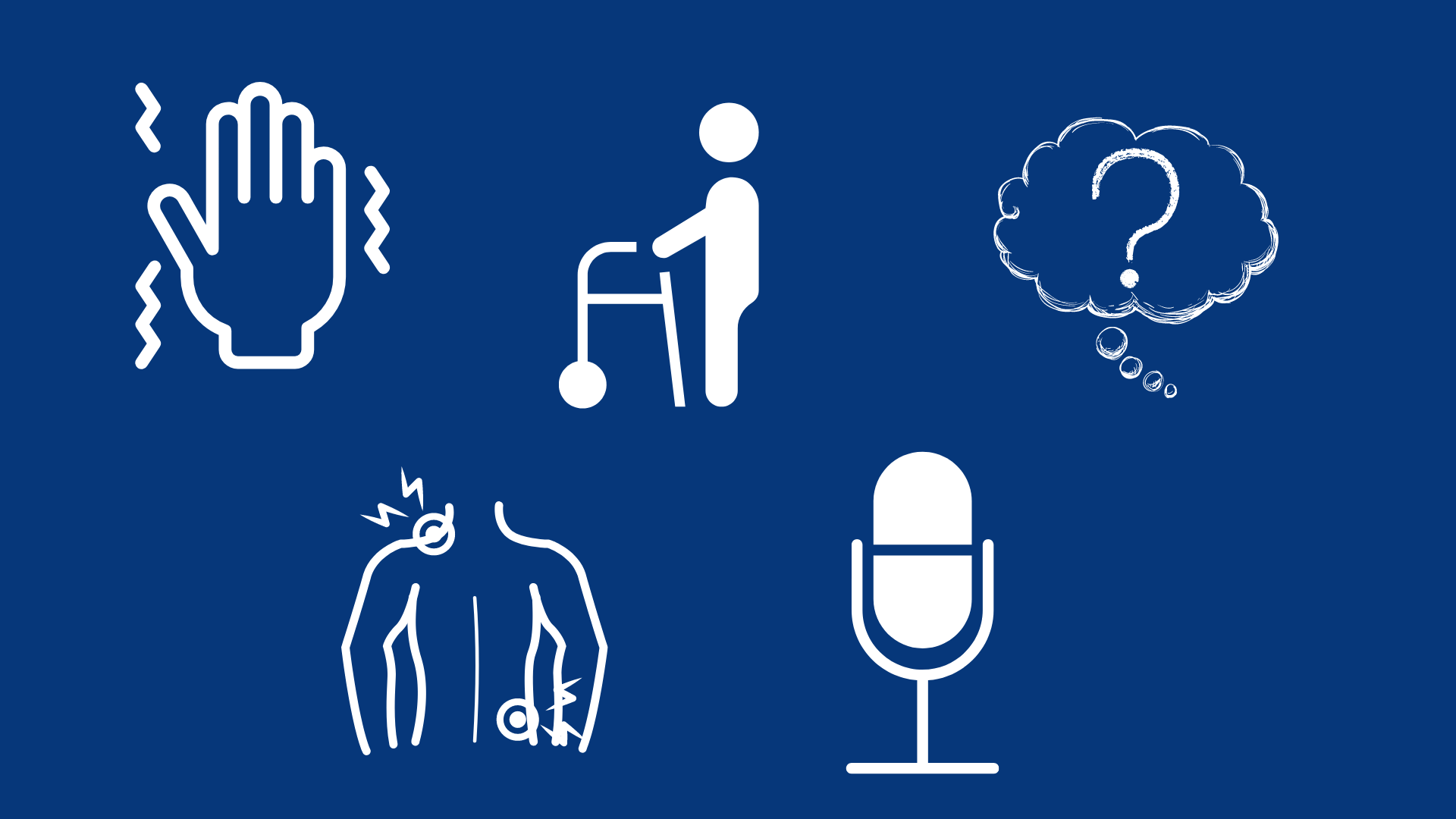Parkinson's Awareness Week: How to Make Daily Living Easier
This week is Parkinson's Awareness Week. Studies have shown that as of 2022 Parkinson's disease affects roughly 145,000 people in the UK alone. Parkinson's disease causes significant difficulties to daily living, and makes activities that many of us take for granted far more difficult. This Parkinson's Awareness Week we want to bring attention to some of the symptoms of Parkinson's and how you or your loved one can find solutions to help with those symptoms, and make living with the disease easier.
What is Parkinson's Disease?
Parkinson's disease is a brain disorder that causes many symptoms, including but not limited to muscle shaking, muscle stiffness, difficulty walking and with balance. In addition to this many people also experience mental and behavioural symptoms, sleep issues, memory troubles and fatigue. Symptoms usually start out gradually, and progress in severity over the years.
What causes Parkinson's Disease?
Parkinson's is caused by nerve cells in the basal ganglia area of the brain becoming impaired and/or dying. This area of the brain associated with movement and control. It is usually associated with age, mostly affecting those over 60, and affecting 50% more men than women. 5-10% can have what is termed ‘early onset’, meaning that symptoms start before a person is 50 years old.
There is a whole host of products out there that can help mitigate some of the difficulties of living with Parkinson's if you only know where to look.

Tremors
Tremors or the shaking of muscles and limbs are the most recognisable symptoms of Parkinson's disease. They usually start in a single limb, most commonly a hand or in the fingers. The trembling can occur even when the affected limb or area is at rest, as well as when it is in use. This can make every day tasks such as eating and drinking difficult.
There is a wide range of products that are designed to offset tremors as you eat or drink, so that the chance of spillage is lessened and you can still eat independently and with dignity. These include items like tremor offset spoons, which maintain a stable usable position no matter what angle it is held at, or anti-spill mugs that allow you to drink without fear of spilling hot liquid on yourself and causing potential burns.
Rigid or Stiff Muscles
As well as causing tremors and shaking, Parkinson's can cause one's muscles to become stiff and rigid. This limits your range of movement and can make daily tasks like dressing difficult. Items such as button hooks and dressing sticks can allow you to extend your range of motion and reach in order to dress and handle the finicky parts of dressing such as pulling up zippers or doing up buttons despite stiff fingers.
Speech
Speech is often affected by Parkinson's and can be affected in a vast number of different ways. It can make your speech softer, faster, slurred or hesitant amongst other affects. This can be frustrating when trying to communicate with loved ones, doctors and friends. There are many products that can help you with all of these aspects, from voice amplifiers to applications for tablets or phones to help with communication should speech be too difficult or time consuming due to slurring or stuttering.
Memory
Memory difficulties are also common in those with Parkinson's. As the disease progresses over time some people with Parkinson's can even progress from simple memory loss to dementia. Mild memory and thinking problems can range from a difficulty concentrating, to mild forgetfulness, or difficulty making decisions. For those with more severe issues however it can cause Parkinson's dementia. The symptoms of Parkinson's dementia vary from person to person, and can even fluctuate hour to hour. Commonly people might have trouble following conversations and remembering what was said, difficulty concentrating, difficulty remembering people and routines etc.
There are many products that can assist with memory difficulties, whether that is to do lists, or applications designed to help you remember things like medication of physio, or even a simple pill box that shows you whether you have or haven't taken your medication that day.
Mobility
For most people with Parkinson's as the disease progresses their mobility becomes compromised. Your posture may become stooped, you may have balance problems or you may take shorter steps, or drag your feet which can make walking difficult. There is an extremely wide range of mobility aids that can help keep you moving independently for longer, from simple walking sticks, to walkers, to wheelchairs.
To find out more about any of the above mentioned products click on the bold and underlined text to follow the links to the website, or head to the below categories of the websites.
- Walking Aids
- Daily planners, prompting devices, and memo recorders
- Medication organisers
- Dressing aids
Thank you for reading.